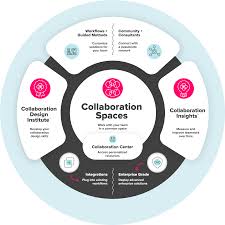The Importance of Gender Neutral Language
In recent years, the use of gender-neutral language has gained significant attention as a way to promote inclusivity and respect for all individuals, regardless of their gender identity. Gender-neutral language refers to words and expressions that do not indicate a specific gender, avoiding assumptions about a person’s gender based on their appearance or characteristics.
One of the key reasons why gender-neutral language is important is to create a more inclusive and welcoming environment for everyone. By using terms that are not tied to a specific gender, we can avoid excluding or marginalizing individuals who do not identify within the traditional binary understanding of male and female.
Gender-neutral language also plays a crucial role in challenging stereotypes and breaking down societal norms that limit individuals based on their gender. It allows people to express themselves authentically without being confined by rigid expectations associated with masculinity or femininity.
Furthermore, using gender-neutral language can have a positive impact on mental health and well-being. For many individuals, being misgendered or subjected to assumptions about their gender can be hurtful and invalidating. By adopting inclusive language practices, we can create a more respectful and supportive environment for all members of society.
It is essential for organizations, educational institutions, and individuals to embrace the use of gender-neutral language in their communication. This can be achieved through simple changes such as using “they/them” pronouns instead of assuming someone’s gender or opting for gender-neutral terms like “spouse” instead of “husband” or “wife.”
By prioritizing the use of gender-neutral language, we can contribute to building a more equitable and accepting society where all individuals are valued and respected for who they are.
Understanding Gender Neutrality: Common Questions and Answers
- What does it mean to be gender-neutral?
- What are examples of gender-neutral?
- What is the difference between gender-neutral and nonbinary?
- What is an example of gender-neutral?
- What is the gender-neutral term for gender?
- What does it mean to be a gender neutral person?
- Does gender-neutral mean unisex?
- What is someone who is gender-neutral?
What does it mean to be gender-neutral?
Being gender-neutral means to adopt a way of thinking, speaking, and behaving that does not conform to traditional binary concepts of gender as strictly male or female. Gender-neutral individuals may identify outside the conventional gender categories or may choose not to align themselves with any specific gender identity. Embracing a gender-neutral approach involves recognizing and respecting the diverse spectrum of gender identities beyond the binary, promoting inclusivity, and creating a more accepting and supportive environment for all individuals regardless of their gender expression.
What are examples of gender-neutral?
Gender-neutral language includes terms and expressions that do not specify a particular gender, thereby avoiding assumptions based on traditional binary gender roles. Examples of gender-neutral language include using “they/them” pronouns instead of “he/him” or “she/her,” addressing a group of people as “folks” or “everyone” instead of “ladies and gentlemen,” and using terms like “partner” instead of “husband” or “wife.” By incorporating these examples of gender-neutral language into our everyday communication, we can create a more inclusive and respectful environment for individuals of all gender identities.
What is the difference between gender-neutral and nonbinary?
Gender-neutral language and nonbinary gender identity are related concepts but refer to different aspects of gender inclusivity. Gender-neutral language focuses on using words and expressions that do not specify a particular gender, aiming to be inclusive of all individuals regardless of their gender identity. On the other hand, nonbinary is a specific gender identity that falls outside the traditional binary understanding of male and female. Nonbinary individuals may identify as neither exclusively male nor female, or as a combination of both genders, or as a different gender entirely. While gender-neutral language promotes inclusivity in communication, nonbinary identities challenge the notion of a strict binary understanding of gender, highlighting the diversity and complexity of human experiences with regard to gender identity.
What is an example of gender-neutral?
An example of gender-neutral language is the use of the pronoun “they” as a singular pronoun to refer to a person without specifying their gender. Instead of saying “he” or “she,” using “they” allows for inclusivity and respect for individuals who may not identify within the traditional binary understanding of gender. This simple adjustment in language helps create a more welcoming and inclusive environment for everyone, regardless of their gender identity.
What is the gender-neutral term for gender?
The gender-neutral term for gender is “gender identity.” Gender identity refers to a person’s deeply held sense of their own gender, which may be different from the sex they were assigned at birth. Using the term “gender identity” acknowledges that gender is a complex and personal aspect of an individual’s identity that may not conform to traditional binary categories of male or female. Embracing gender identity as a gender-neutral term allows for greater inclusivity and respect for diverse experiences of gender within society.
What does it mean to be a gender neutral person?
To be a gender-neutral person means identifying outside of the traditional binary understanding of male and female. Gender neutrality is about rejecting societal expectations and norms associated with gender, and instead embracing a fluid or non-binary identity that does not conform to traditional gender categories. Gender-neutral individuals may use gender-neutral pronouns like “they/them” and may present themselves in a way that does not align with stereotypical expressions of masculinity or femininity. Being gender neutral is about affirming one’s authentic self and advocating for inclusivity and respect for all gender identities.
Does gender-neutral mean unisex?
Gender-neutral does not necessarily mean unisex. While both concepts aim to eliminate gender-specific distinctions, they serve different purposes. Gender-neutral refers to language, products, or spaces that are inclusive of all gender identities and do not assume a binary understanding of gender. On the other hand, unisex typically refers to products or designs that are intended for use by individuals of any gender, often by combining elements traditionally associated with both male and female categories. It is important to recognize the distinctions between these terms and understand how they contribute to creating more inclusive and diverse environments for people of all genders.
What is someone who is gender-neutral?
A person who identifies as gender-neutral, also known as non-binary or genderqueer, does not exclusively identify as male or female. Instead, they may see themselves as outside the traditional gender binary or may feel that their gender identity is fluid and not fixed to a specific category. Being gender-neutral is a valid and important aspect of diversity within the LGBTQIA+ community, highlighting the complexity and diversity of human identity beyond conventional norms of gender expression.




Leave a Reply